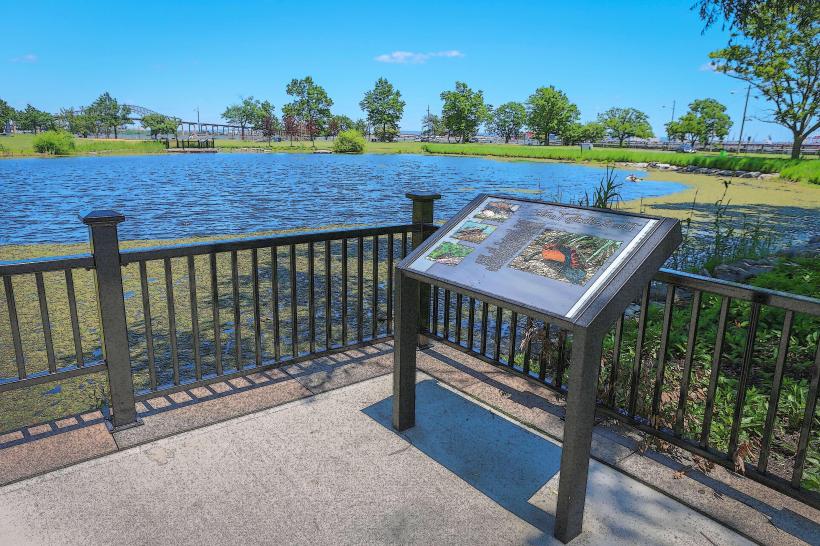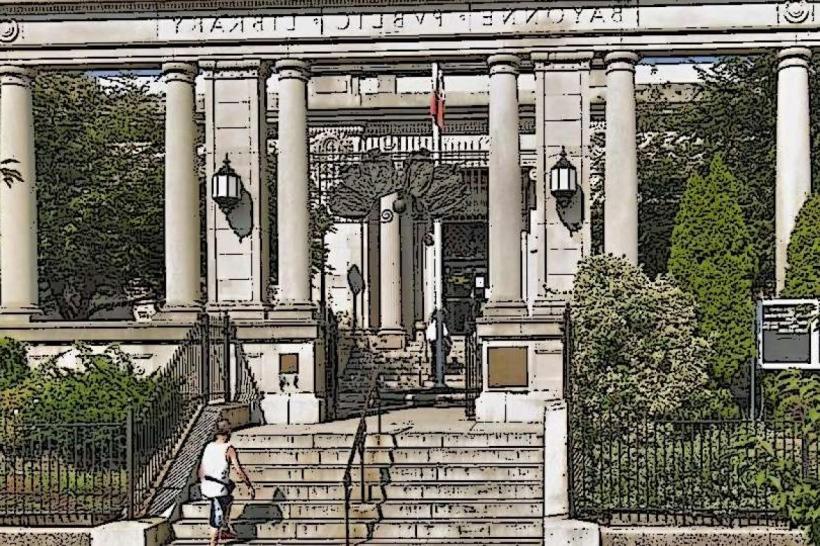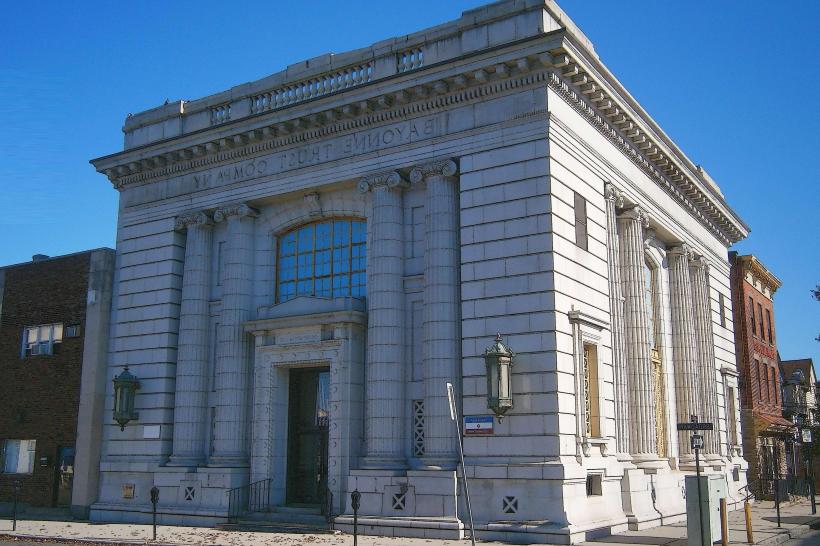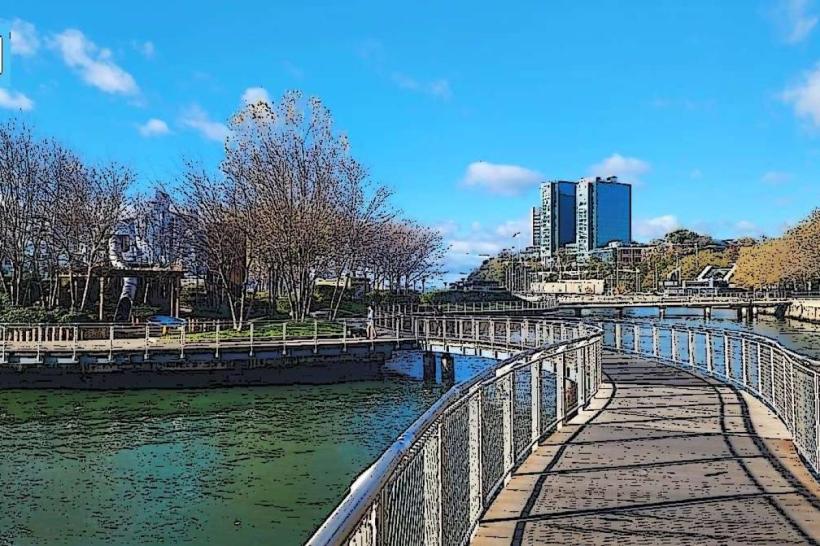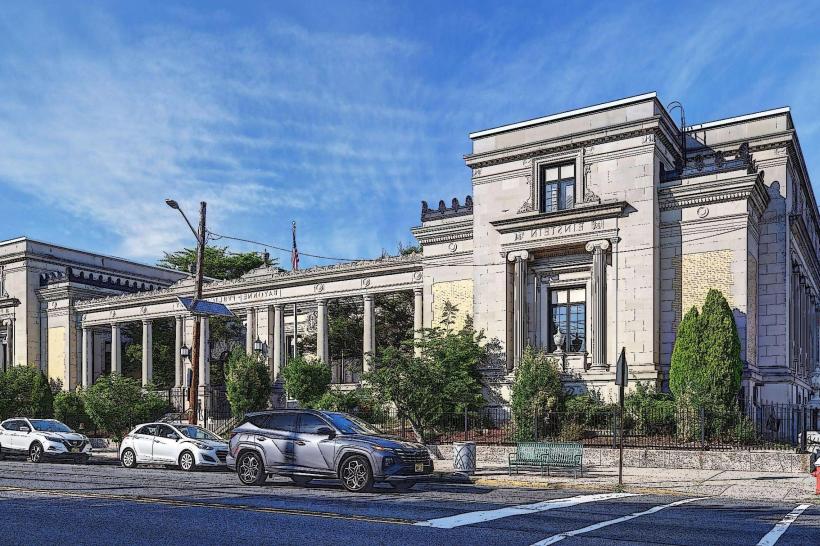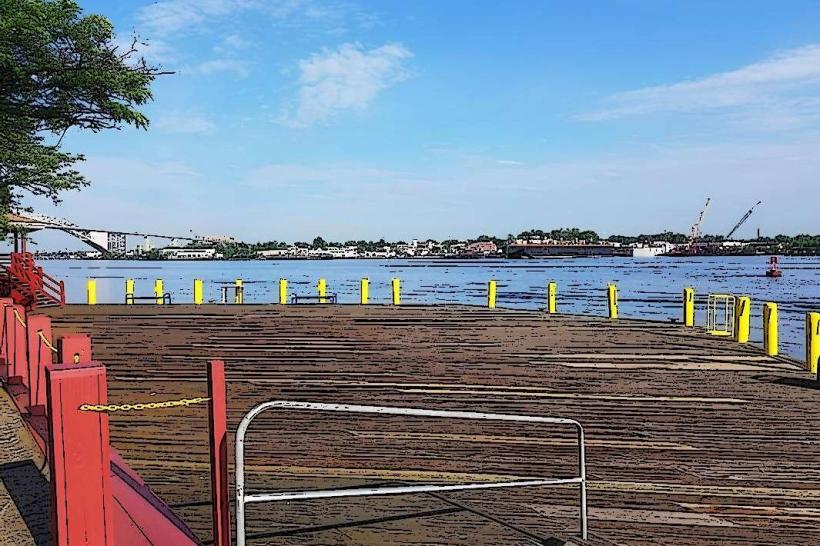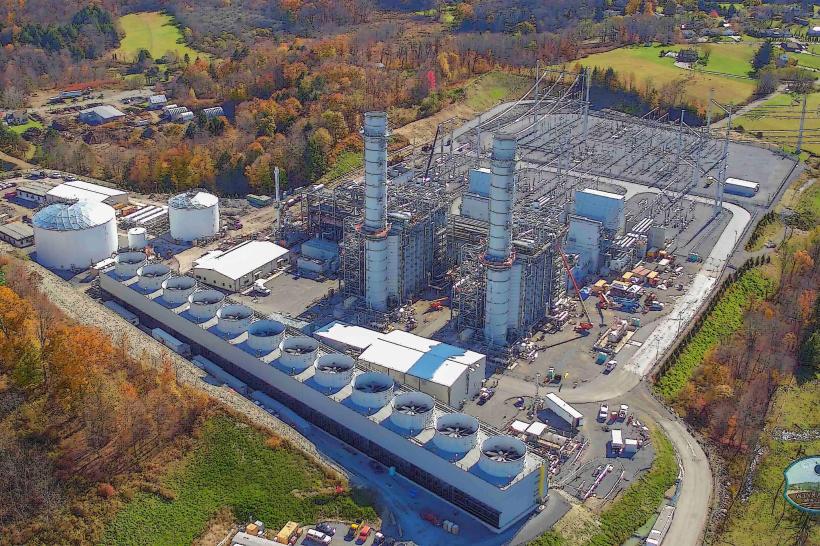Information
City: BayonneCountry: USA New Jersey
Continent: North America
Bayonne, USA New Jersey, North America
Bayonne, New Jersey, is a vibrant city located in Hudson County, occupying a strategic peninsula bordered by Newark Bay to the west, the Kill Van Kull to the south, and New York Bay to the east. This waterfront city, with an estimated population of around 70,300 residents as of 2023, combines rich historical roots, industrial heritage, and a modern urban lifestyle shaped by diverse cultural influences.
Historical Overview
Bayonne was officially established as a township in 1861 and later reincorporated as a city in 1869. The name "Bayonne" is believed to be inspired either by the city of Bayonne in France or by its unique geographic positioning on two bays, which has significantly influenced its development. Historically, Bayonne was an important industrial and maritime center. In the late 19th and early 20th centuries, the city flourished as a hub for oil refining and shipbuilding, industries that attracted a large working-class population and helped fuel the regional economy.
During World War II, Bayonne played a critical role in military logistics with the establishment of the Military Ocean Terminal at Bayonne (MOTBY). This terminal served as a major shipping and transportation hub for U.S. military operations. After the military base was decommissioned in the late 1990s, the city undertook efforts to redevelop the waterfront area into a mixed-use space, blending residential, commercial, and recreational facilities that have transformed Bayonne’s shoreline into an attractive urban waterfront district.
Demographics and Community
Bayonne’s population reflects a rich mosaic of ethnic and cultural backgrounds. Historically dominated by European immigrant groups such as the Irish, Italians, and Polish, the city today has grown to include significant populations of Puerto Rican, Egyptian, Filipino, Dominican, Mexican, and Indian descent. This diversity is evident in the city’s cultural festivals, religious institutions, and especially its varied culinary scene, where residents and visitors can experience a broad spectrum of traditional and contemporary international cuisines.
Economy and Urban Development
The city’s economy has evolved significantly from its industrial origins toward a more diversified structure emphasizing tourism, retail, services, and small-scale manufacturing. One of the key economic drivers is the Cape Liberty Cruise Port, a major cruise terminal that serves as a gateway for cruises to destinations such as Bermuda, the Caribbean, and Canada. The port brings significant tourism-related revenue and supports local businesses including hotels, restaurants, and transportation services.
Bayonne also benefits from its designation as part of an Urban Enterprise Zone (UEZ), which incentivizes business development by offering reduced sales tax rates and other economic benefits. The Bayonne Town Center, located along Broadway, is a focal point for shopping, dining, and commercial activity, featuring a mix of national retailers, local boutiques, cafes, and service providers.
Cultural and Recreational Attractions
Bayonne has several notable cultural landmarks and recreational spaces that contribute to its community identity:
Bayonne Public Library: Founded in 1890, the library's main building, constructed in 1904, is one of New Jersey’s original Carnegie libraries still in use. The building’s Beaux-Arts and Classical Revival architecture is an important historic and cultural asset. Beyond lending books, the library hosts a variety of community programs, educational workshops, and cultural events.
Bayonne Truck House No. 1: This historic firehouse, built in 1875, now operates as the Chief John T. Brennan Fire Museum. It preserves and displays artifacts related to Bayonne’s firefighting history and is listed on the National Register of Historic Places, highlighting the city's commitment to preserving its heritage.
Collins Park: The city’s largest municipal park spans 40 acres along the Kill Van Kull waterfront. It offers residents and visitors open green spaces, walking paths, playgrounds, and waterfront views, providing essential recreational opportunities in an urban setting.
Teardrop Memorial: Officially named “To the Struggle Against World Terrorism,” this striking 100-foot-tall monument was a gift from Russia in 2006 to commemorate the victims of the September 11, 2001 attacks. Located on the Bayonne waterfront, it stands as a powerful symbol of international solidarity and remembrance.
Education
The Bayonne School District administers public education throughout the city, serving students from pre-kindergarten through 12th grade. The district comprises 13 schools and enrolls over 10,000 students. One distinctive feature of Bayonne High School is its on-campus ice rink, one of the few in New Jersey public schools, supporting a well-regarded hockey program and fostering community engagement through sports.
Transportation and Connectivity
Bayonne boasts excellent transportation links that enhance its appeal to residents and businesses alike. The Hudson-Bergen Light Rail serves several stations within the city, including 45th Street, 34th Street, 22nd Street, and 8th Street stations, offering efficient public transit connections to neighboring cities such as Jersey City, Hoboken, and into the broader New York metropolitan area.
The Bayonne Bridge is a vital infrastructure element, connecting Bayonne with Staten Island, New York. This bridge facilitates regional commerce, commuting, and travel, and its recent modernization has accommodated larger cargo ships, ensuring Bayonne’s continued importance in maritime logistics.
Climate and Environment
Bayonne experiences a humid subtropical climate, typified by warm, humid summers and relatively mild winters with damp conditions. Average temperatures range from around 32°F (0°C) in winter to 77°F (25°C) in summer. The city's location along the water moderates temperature extremes somewhat and provides residents with scenic waterfront views and outdoor recreational opportunities year-round.
Living in Bayonne
Bayonne offers a blend of urban convenience, historical charm, and access to nature. Housing options are varied, including single-family homes, row houses, and modern apartment complexes. The city’s rich cultural diversity, combined with its parks, historic sites, and waterfront amenities, contribute to a strong sense of community. The presence of well-maintained public schools, cultural institutions, and recreational facilities makes Bayonne an attractive location for families, young professionals, and retirees.
Summary
Bayonne stands out as a city with a compelling history, evolving from its industrial past to a modern, diverse urban community with significant cultural, recreational, and economic assets. Its waterfront location offers both strategic importance and scenic appeal, while its transportation infrastructure provides excellent regional connectivity. Bayonne’s multicultural population and commitment to preserving its heritage and improving quality of life underscore its identity as a dynamic and welcoming city in the New Jersey metropolitan area.


